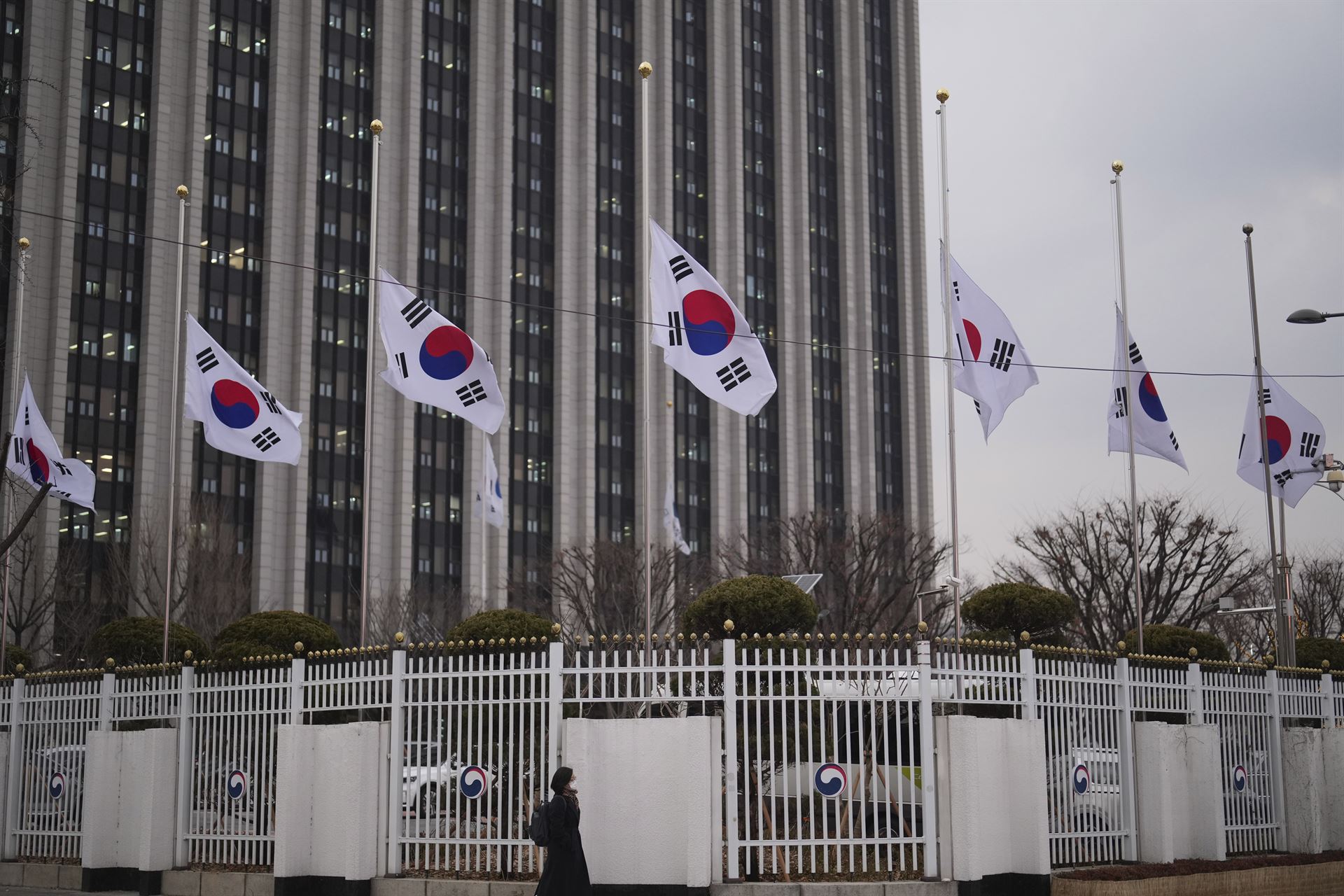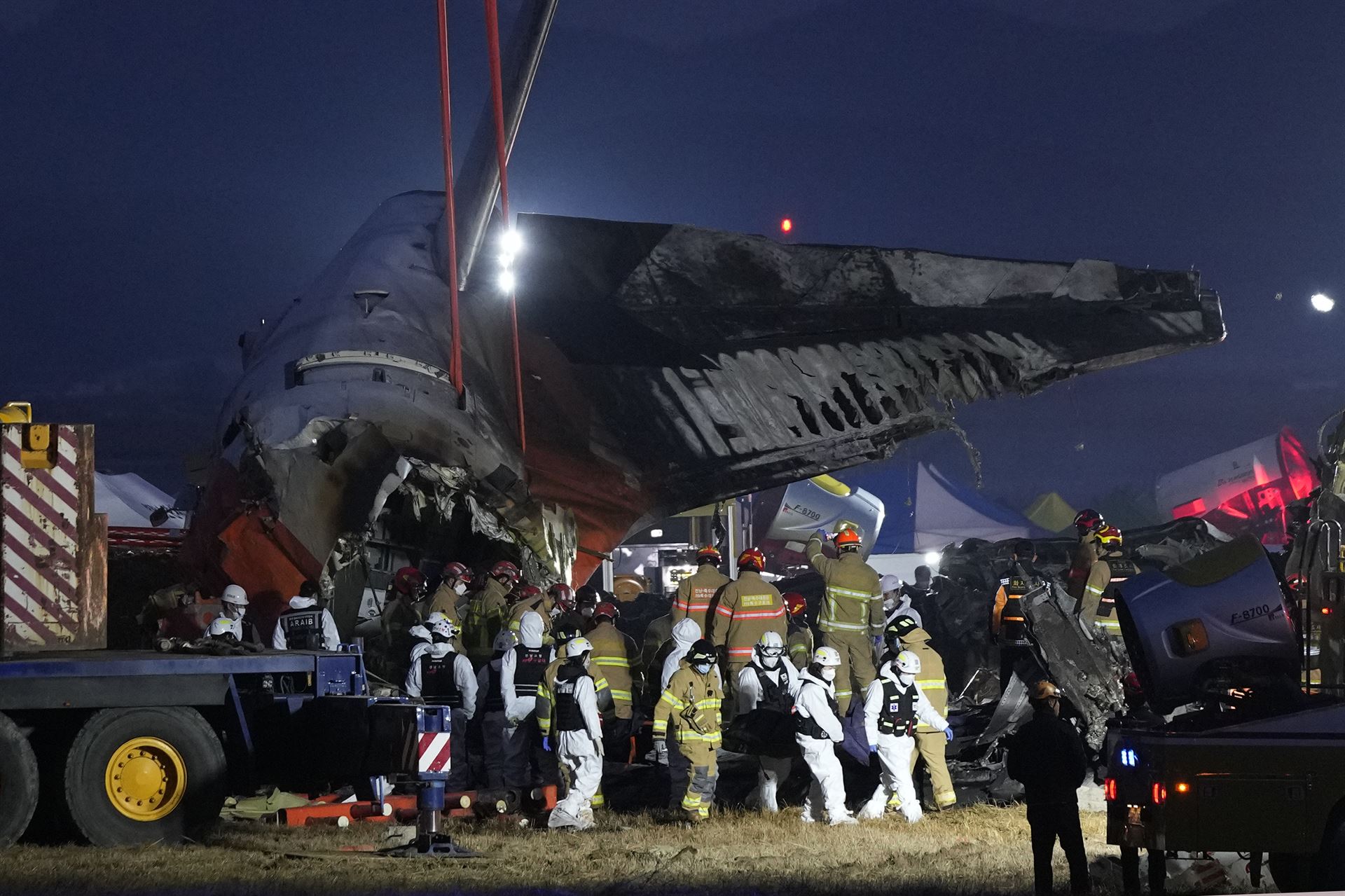
SEJONG, South Korea - South Korea's transport minister said on Tuesday he intends to step down to take responsibility for the deadly crash of a Boeing jet operated by Jeju Air on Dec 29.
Jeju Air 7C2216, which departed the Thai capital of Bangkok for Muan in southwestern South Korea, belly-landed and overshot the regional airport's runway, exploding into flames after hitting an embankment.
ALSO READ: South Korea extends shutdown of Muan airport due to crash probe
"I feel heavy responsibility for this disaster," Park Sang-woo told a press briefing.
He said he will try to find the right timing to resign after addressing the current situation.
READ MORE: S. Korea to compile voice recording transcript from crashed plane
The transport ministry also said it will swiftly improve the safety of airport landing systems that experts said contributed to the catastrophic accident that killed 179 people on board.
Air safety experts have said the embankment, designed to prop up the "localizer" antenna used to guide landings in poor visibility, was too rigid and too close to the end of the runway.

Joo Jong-wan, the deputy transport minister for civil aviation, acknowledged that safety measures were not sufficient when building the embankment, but said they were done in line with regulations in Korea and overseas.
The police are investigating how the embankment was constructed, he said. The police last week raided Jeju Air and the operator of Muan International Airport as part of their investigation into the crash. Feathers were found on one of the engines recovered from the crash scene, the lead investigator Lee Seung-yeol said, adding that video footage showed that there was a bird strike on one of the engines.
Two of the Korean investigators on Monday left for the United States to recover and analyze a flight data recorder which was damaged during the crash, with the US National Transportation Safety Board.
The flight data recorder, along with a cockpit voice recorder, are the two black boxes that contain key information about the crash.
READ MORE: South Korea extends Boeing 737-800 inspections following fatal crash
Lee said it will take three days to extract files from the flight data recorder, and another two days to do preliminary analysis of basic information such as whether one or two engines failed.
It remains unanswered why the aircraft did not deploy its landing gear and what led the pilot to apparently rush into a second attempt at landing after telling air traffic control the plane had suffered a bird strike and declaring an emergency.
Experts say bird strikes do not typically cause landing gear to malfunction.
Investigators on Saturday compiled the complete transcript from the cockpit voice recorder recovered from the wreckage of the Jeju Air plane, and will discuss whether to disclose it or not.


